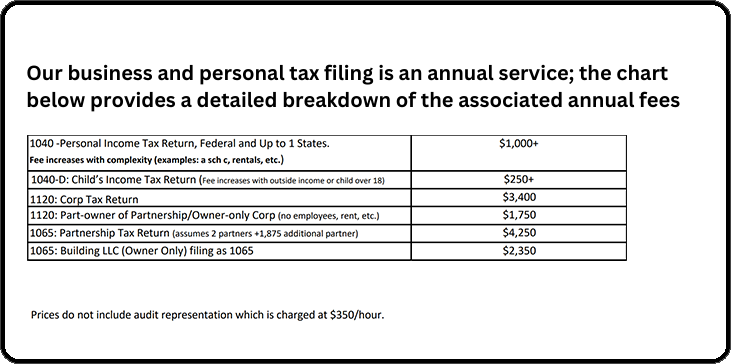Tune in to our podcast series: The Dental Board Room
Listen Now

Private dental practices rely on more than clinical skill to achieve long-term success. High-producing practice owners understand that dentistry is both a clinical profession and an operational business. The owners who consistently earn strong take-home income are the ones who manage their practices like operators, not just clinicians. They focus on building systems that support smooth patient flow, efficient daily operations, and effective team performance. When these systems work together, the practice becomes more stable, more predictable, and more profitable. This blog explores the three-part model that successful practices depend on and how these systems directly influence income and operational stability.
Every thriving practice rests on a combination of three equally important components. These include clinical services, logistics, and technology. When these elements operate separately, inconsistently, or without coordination, the practice faces inefficiencies that affect production and patient experience. When they function together, they create a strong foundation for growth and improved financial outcomes.
One part of the model focuses on clinical services, which refers to the quality and consistency of care. Another part is logistics, meaning the daily operations, workflows, and scheduling structures. The third part is technology, which has become essential for accuracy, communication, documentation, and process improvement. The most successful practices treat these three categories as interconnected. Each one supports the others, and together they create a practice that operates smoothly and sustainably.
Clinical systems shape the overall patient experience. When clinical processes are clearly defined, predictable, and consistent, the practice operates more efficiently and confidently.
One important step is standardizing patient flow from the moment a patient checks in until treatment is completed. Standardization reduces confusion, saves time, and increases patient satisfaction. Efficient communication scripts also help both the front office and the clinical team. Clear scripts support consistent messaging about treatment plans, payment expectations, and follow-up instructions.
Creating consistent exam routines is another essential clinical system. When each team member knows the structure of exams, re-care visits, and follow-up processes, the practice becomes more reliable. These systems also reduce errors and ensure that patients receive the same high-quality experience every time they visit. Strengthening clinical systems ultimately improves efficiency and supports steady production.
Daily logistics play a major role in how smoothly a practice operates. When workflows are unclear or poorly designed, production slows down, appointments fall behind, and stress increases. For this reason, efficient logistics are central to building a high-functioning practice.
Technology has become a powerful tool for improving practice operations. When used well, it enhances communication, accuracy, and productivity. Many digital tools also help reduce administrative pressure and create more organized systems.
Digital charting and scheduling tools streamline the documentation process and improve coordination between team members. They help maintain clear records and reduce confusion or duplicated tasks. In addition, many modern practices use AI tools to support decision-making, evaluate diagnostic information, or assist with treatment planning. AI also helps reduce administrative burden by automating reminders, follow-ups, and patient communication.
Strong systems cannot function without strong leadership. Practice owners who understand their leadership responsibilities create a culture that supports productivity, consistency, and patient trust. Team development is a key part of this leadership approach.
A healthy practice culture encourages accountability without micromanagement. Clear expectations help staff understand their roles and perform confidently. When people feel supported, they are more engaged and motivated. This reduces turnover and helps maintain a reliable patient experience.
Building a team that works together smoothly requires ongoing communication and training. Regular team meetings, feedback sessions, and skill development opportunities help align everyone with the practice’s goals. A well-developed team reduces errors, increases patient satisfaction, and strengthens the practice’s reputation. Leadership and team development are, therefore, essential components of long-term practice stability.
Strong systems are not just operational tools. They have a direct impact on the financial health of the practice. When workflows are organized, communication is clear, and technology supports quick and accurate work, the practice naturally becomes more profitable.
One of the financial benefits is lower overhead. Efficient systems reduce waste, minimize rework, and improve time management. This means fewer unnecessary expenses and more productive use of resources. Another financial advantage is higher production per hour. When each appointment is designed to support productivity and clinical teams work smoothly, daily output naturally increases.
Private practices thrive when clinical systems, logistics, and technology work together in harmony. High income and stability are not the result of chance but of planning and structured operations. When practice owners think like operators, develop strong systems, and lead their teams effectively, they create an environment where both patients and staff can succeed. Reliable workflows, consistent communication, and thoughtful scheduling contribute to improved production and lower stress. By investing time and attention into these systems, private practice owners build the foundation for lasting success, financial strength, and long term stability.
Build a more efficient, productive, and stable dental practice by improving your clinical processes, daily logistics, and technology integration for long-term success.
Wes knows what's best for dental practices. He's been doing this for a long time and he sees lots of practices. He can tell me how our practice is doing, and what we can do to increase our productivity. With past CPA's, there were no ideas. It was all coming from me, saying "I think I can do better, but I don't know how." I come in to meet with Wes and he says "You CAN do better, and I know how."
PracticeCFO is in hundreds of dental offices around the country. They know what numbers should look like. They know what percentages of payroll, rent and supplies should be, and they will hold you accountable to those numbers, which will really help you stick to your plan and your path of growth and savings. That is invaluable
Whenever something comes up, whether it's building or practice related and we weren't sure where the numbers would go, PracticeCFO has been instrumental in helping us figure that out. I can't say enough of how important that is - that it goes beyond that initial partnership. They make sure this business marriage works.
When I go home from work, I don't spend a whole lot of time stressing about what my books look like, or how much I owe in taxes. By using PracticeCFO, the burden of keeping track of a lot of the big financial numbers and metrics are taken off my plate.
PracticeCFO helped me develop a plan for the future. I have colleagues that work with other accountants that don't have a plan - they just look at the numbers of the practice and that's it. There's no plan for 10, 20 years from now. But with PracticeCFO, you get that. PracticeCFO makes you feel like you're they're only client.
(In reference to his practice sale) What could've been super stressful, wasn't! When picking John and Wes, it was from word of mouth recommendations and other people's experiences from the past that really did it for me. And it turns out that those recommendations were right on the line.
Wes knows the business side of dentistry. His comprehensive plan will organize your personal and professional finances so you can focus on taking care of patients. Massive ROI.
I can’t say enough good things about everyone at PracticeCFO. Everyone on the team is professional, organized, knowledgeable, helpful and kind. They also respond to emails and phone calls immediately and are always happy to help. They have helped me navigate year-to-year as a business owner. PracticeCFO gives me peace of mind that my business is in good hands.
I love Practice CFO! They have helped me obtain a practice and maintain a practice. They are incredible people who are on top of everything and make owning and running the business portion of a practice easy. They couldn’t be better for my business and my sanity. They have every detail of the business and taxes taken care of where all I have to do is show up and follow their easy steps to success!
Practice CFO has the best tools I’ve seen for personal tax and financial planning in addition to top-tier corporate tax and accounting services. I have been very pleased with the level of quality service. They manage my monthly bookkeeping and accounts payable. It is a great system and saves me a ton of time, and it allows us to have monthly financial statements within a week of month end.

This will close in 0 seconds